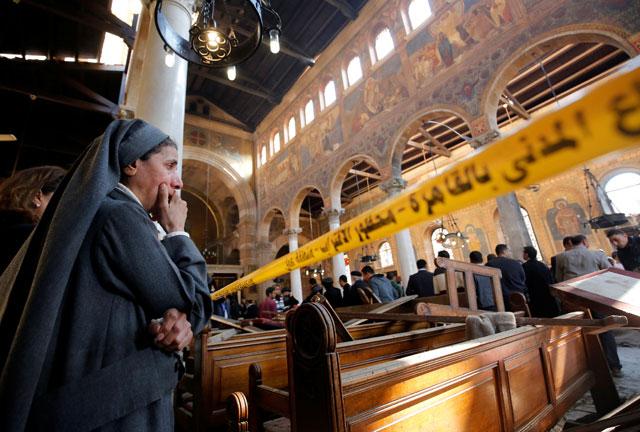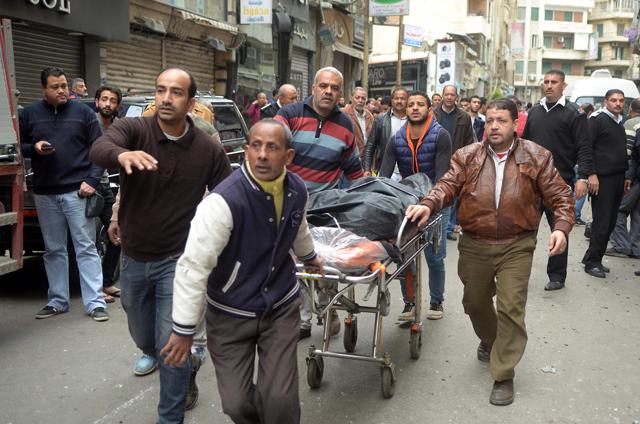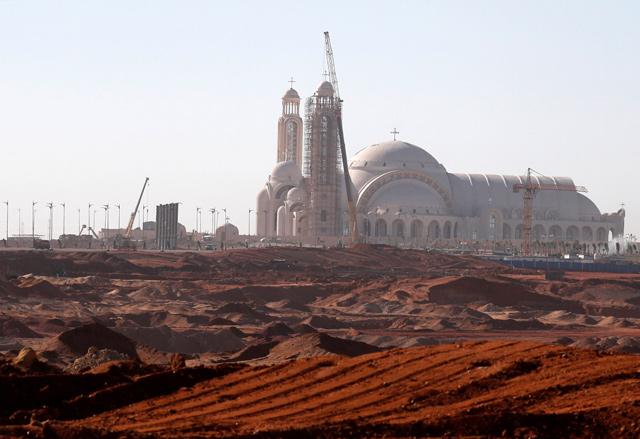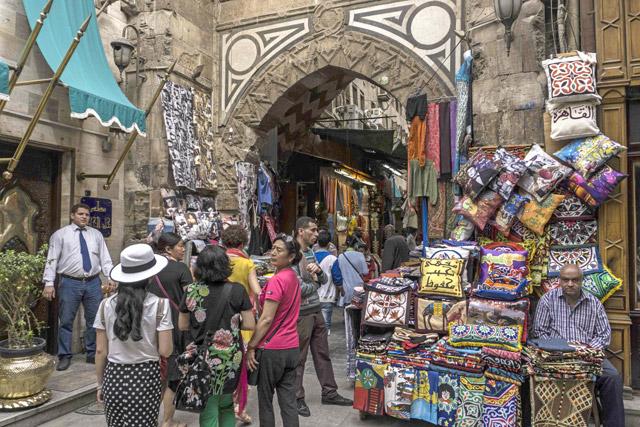You are here
Bombing kills at least 25 near Cairo Coptic cathedral
By AFP - Dec 11,2016 - Last updated at Dec 11,2016

A nun cries as she stands at the scene inside Cairo’s Coptic cathedral, following a bombing, in Egypt on Sunday (Reuters photo)
CAIRO — A bomb blast tore through a church near Cairo's Coptic cathedral during a service Sunday, killing at least 25 people in the deadliest attack in recent memory on Egypt's Christian minority.
There was no immediate claim of responsibility for the bombing, but Coptic Christians, who make up about 10 per cent of Egypt's population, have been previously targeted in extremist attacks.
At least 31 people were wounded in the explosion, the health ministry said, as the attack drew condemnation from political and religious leaders and led President Abdel Fattah Al Sisi to declare three days of national mourning.
The bombing hit around 10:00am at the Saint Peter and Saint Paul Church, which is adjacent to Saint Mark's Cathedral, the seat of the Coptic Pope Tawadros II.
The blast shattered the church's windows and scattered pews through the interior of the church, scorching its marble pillars.
Ball-bearing-sized shrapnel peppered the walls covered in icons of saints and destroyed a box that contained a saint's relics. Pools of blood congealed on the floor.
Security officials said they believed a bomb containing 12 kilos of TNT appeared to have been behind the explosion.
"I was leaving the church and then I heard a loud explosion and there was a lot of smoke and people started running and screaming," Jackline Abdel Shahid, one of the survivors, told AFP at the scene.
“The ambulances started coming, and they kept bringing out body parts,” she said.
‘Where were security forces?’
“Where were the security forces? They’re filling the streets now, but it’s too late,” said Gebrail Ebeid, who had been headed to services when the bomb went off.
Several dozen people gathered outside to protest after the bombing, chanting for the resignation of Egypt’s interior minister.
They scuffled briefly with police as they tried to push through the cordon.
It was the worst attack on the Coptic Christian community since a 2011 suicide bombing killed more than 20 worshippers outside a church in the coastal city of Alexandria.
“The nation’s Muslim and Christian citizens stand together against this black terrorism,” Prime Minister Sherif Ismail said in a statement.
President Abdel Fattah Al Sisi condemned what he described as “the abhorrent terrorist attack”, saying in a statement: “Egypt will only emerge stronger and more unified from these events.”
The president also called the Coptic Pope to offer his condolences.
Sheikh Ahmed Al Tayeb, the head of Egypt’s top Sunni Muslim authority Al Azhar, said the “vile terrorist explosion” was “a great crime against all Egyptians”.
The bombing took place on a national holiday to mark Prophet Mohammad’s birthday.
EU Foreign Affairs Chief Federica Mogherini in a statement offered her condolences and solidarity “with Egypt in its efforts to defeat terrorism”.
The church that was targeted “is deeply loved by many Coptic faithful in Cairo and it has a regular parish presence,” said Bishop Angaelos, the General Bishop for the Coptic Church in Britain.
He said services had been held in the church on Sunday morning, while Saint Mark’s Cathedral was being renovated.
“It’s an easier target because its entrance is outside the precincts” of the cathedral.
Copts have faced persecution and discrimination dating back to the 30-year rule of Hosni Mubarak, who was toppled by a popular uprising in 2011.
Dozens have been killed in recent years in sectarian attacks and clashes throughout Egypt.
In April 2013, two people died in clashes with local residents outside Saint Mark’s Cathedral, the spiritual heart of the largest Christian minority in the Middle East.
Militants in August 2013 attacked churches and homes of Copts in retaliation for the dispersal by security forces of Cairo protest camps set up by supporters of Mohamed Morsi, the Islamist president deposed by then-army chief Sisi.
Enraged by the crackdown which killed hundreds, mobs lashed out at Copts in the Upper Egypt province of Minya, accusing them of backing the military.
More than 40 churches were attacked nationwide, with most attacks in Minya and Assiut, Human Rights Watch said at the time.
Security forces have been the main target of attacks following Morsi’s ouster.
Most of the attacks are conducted in the Sinai Peninsula by a branch of the Daesh terror group, although militants have also targeted security forces and government officials in Cairo.
On Friday, six people died in a bombing next to a police checkpoint in the Talibiya area of Cairo shortly before Muslim weekly prayers when the streets are mostly empty.
Related Articles
TANTA/CAIRO — At least 44 people were killed in bomb attacks on the symbolic cathedral seat of the Coptic Pope and another church on Pa
NEW ADMINISTRATIVE CAPITAL, Egypt — Egypt’s president will inaugurate a massive cathedral on Coptic Christmas Eve on Sunday amid heavy secur
CAIRO — Egypt tightened security outside churches as Coptic Christians prepared for a subdued Easter mass on Saturday days after suicide bom

















